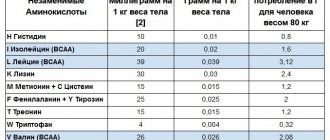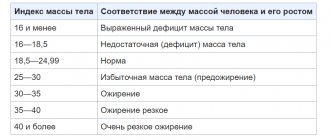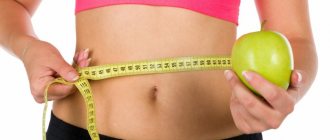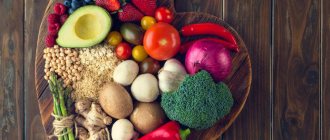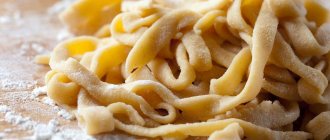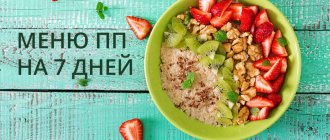What does excess protein consumption lead to?
In the body, protein breaks down into water, ammonia and glucose. Glucose is a source of energy, water is healthy, and ammonia is poison. Therefore, it is bound in the liver by special enzymes and converted into urea. Urea is excreted by the kidneys. If the protein intake significantly exceeds the norm, the endocrine glands work with great tension, nervous excitability increases, the liver, kidneys, joints suffer, and metabolism is disrupted.
Two diseases are usually associated with excess protein intake: urolithiasis and gout. However, they are caused by a violation of another substance - uric acid, which accumulates in the body as a result of a violation of purine metabolism. The mistake is forgivable. This is explained by the fact that both protein and purines are found in large quantities in meat and fish. That is, by consuming meat to excess (especially deli meats!), a person receives not only proteins, but also purines.
How much protein should you eat per day?
The recommended daily intake of protein per day is 0.84 grams per kilogram of body weight [3]. By consuming this amount of protein per day, the average person will meet the protein requirement in the body.
People leading an active lifestyle, for example, those practicing strength training, need more protein - approximately 1.6-1.8 g/kg to increase its synthesis in muscle fibers [4] [5]. The Zozhnik Encyclopedia describes recommendations for protein consumption depending on goals: to maintain and develop muscle mass, you need to consume approximately 1.3-1.8 g of protein per kilogram of body weight per day . When reducing the percentage of fat, it is recommended to increase daily protein intake to 1.8-2 g/kg body weight . If the goal is to reduce the percentage of fat to extremely low values, it is recommended to increase protein intake to 2.3-3.1 g of protein per 1 kg of body weight per day.
Urolithiasis of the kidneys
Uric acid salts crystallize in the kidney tubules. As a result, stones are formed that obstruct the flow of urine. While the stones are small, the person feels slight discomfort in the lumbar region. As they grow, the discomfort intensifies. When a stone blocks the duct, renal colic occurs. Its symptoms are pronounced:
- sharp pain in the lower back;
- the person rushes about, changing body position in search of a position in which the pain will be at least a little less.
This condition requires urgent action. You need to call an ambulance and follow the doctor's instructions.
Protein helps you lose weight and keep it off
As you may know, to lose weight you need to consume fewer calories than you burn in a day. Research shows that eating them increases the number of calories you burn by increasing your metabolic rate (the number of calories burned) and reducing your appetite (the number of calories consumed).
A diet where these nutrients make up 25-30% of daily calories has been shown to increase metabolism by 80-100 kilocalories per day compared to a low-protein diet.
A protein diet reduces appetite, which allows you to lose weight faster. Protein-rich foods help keep you feeling full longer and you won't want to snack too much or frequently throughout the day. A study of obese men found that consuming these organic substances at 25% of total caloric intake promoted satiety, reduced the desire to snack before bed, and reduced obsessive thoughts about food by 50% and 60%, respectively. In another 12-week study, women who increased their intake to 30% of their total calorie intake became fuller in smaller portions and lost 5kg more weight than women in the control group. And if you want to learn more about safe weight loss, we invite you to the Certification Course in Dietetics and Nutritionology.
In addition, they don't just help you lose weight - they help you maintain your desired weight after losing weight. In one study, increasing dietary protein from 15% to 18% reduced the weight people gained after finishing the diet by 50%.
High consumption helps build and maintain muscle mass, which burns a small amount of calories per day.
Diets that contain a lot of foods rich in them are easier to follow. Researchers recommend that those losing weight get 30% of their total caloric intake from proteins. For a diet of 2000 kcal, this is 150 grams of white. in a day. To calculate your norm for you, multiply the calorie content of your diet by 0.075.
In short:
When losing weight, it is recommended to stick to 30% of your total caloric intake to increase your metabolic rate and slightly increase your caloric expenditure at rest.
Protein diet during pregnancy
During pregnancy, the body requires more proteins for tissue development and growth. The products will be useful for both mother and child.
Some researchers note that during pregnancy the body requires 1.2-1.52 grams of protein. per 1 kg of weight, others recommend increasing the usual pre-pregnancy rate by 1.1 grams per 1 kg of weight.
The recommended daily dose during breastfeeding is 1.3 grams per 1 kg of body weight per day plus 25 additional grams. During pregnancy and breastfeeding, nutritionists recommend choosing low-fat sources, such as:
- beans, chickpeas and lentils;
- eggs;
- lean meat;
- dairy products;
- nuts and seeds;
- tofu;
- Fish and seafood.
During pregnancy and breastfeeding, choose fish that are low in mercury and high in omega-3 fatty acids, such as salmon, sardines and anchovies. Be careful not to eat fish that contain high levels of mercury, such as shark, swordfish, tilefish and king mackerel.
Ideally, during pregnancy you will get all the necessary proteins from food. In rare cases, your healthcare provider may recommend protein supplements, but there are no scientifically proven guidelines for taking protein supplements during pregnancy.
Plant based proteins
Protein from plant foods should be included in your total protein count. If your diet is mixed, then you don’t need to worry about insufficient protein from grains, legumes and other foods. All problems are insignificant or overestimated.
Cereals
- Oatmeal;
- Rice;
- Lentils;
- Products made from wheat, barley, rye flour (baked goods, pearl barley, pasta, bulgur and others);
- Spelled;
- Buckwheat;
- Quinoa.
Legumes:
- Peas;
- Beans;
- Soy.
About soy separately
- Soy;
- Tofu;
- Soy milk;
- Soy protein isolate;
- Soy texture (meat substitute).
By itself, soy protein is quite high quality, but difficult to digest, like beans.
The main problem with soy products is the phytoestrogens content, and there is a lot of controversy on this topic. At the moment this issue is unresolved. Extremely large daily intakes of phytoestrogens may little effect on male hormone levels, with smaller amounts having no effect. For women, there are potential benefits for their bodies.
There is no need to be afraid of soy protein, unless you eat only soy protein.
Nuts
In general, all nuts are good due to their high content of vitamins and minerals. The more varied your consumption, the better, but be careful - they are high in calories and high in fat.
Vegetables and fruits
As sources of protein, this is the poorest group of plant foods. Their value lies elsewhere - in fiber, vitamins and minerals.
Mushrooms
The protein content in raw mushrooms is no more than 4-5 g per 100 g of product. Mushroom protein is poor in amino acid composition and is less digestible than animal protein due to the chitin it contains. Since any mushroom consists of 90-95% water, there are also very few vitamins and minerals, and to get the same amount of protein as is contained, for example, in 100 g of meat, you will have to eat almost a whole bucket.
The benefit of mushrooms on a diet lies only in their low calorie content, the amount of food present and saturation.
In general, we should aim to consume a variety of proteins throughout the day first to maximize the benefits and minimize any potential downsides from any one source. With a wide variety of proteins, there is no need to consume any particular protein in excess.
Research
A recent study found that people who consumed 25-30% of their calories from lean, healthy protein were able to lose more fat and also significantly increased the amount of calories they burned.
During the first study, which was devoted to excess weight and obesity in women, experts assessed the condition of those women who consumed so-called high proteins (30%). And those who adhered to a dairy diet, consuming low proteins (15%).
The group of women on a high-protein diet gained lean muscle mass and lost weight faster than the group on a lower-protein diet. The second group also lost extra pounds, but the women also lost muscle mass.
Scientists have suggested that this muscle loss may have a negative impact on a person’s future condition, causing the development of a “plateau effect” during weight loss. Many people who stick to a diet suffer from such an unreasonable cessation of weight loss. Lean muscle mass burns many more calories than fat tissue, even when the human body is at rest.
When those women who ate little protein began to rapidly lose muscle mass, they also lost the ability to burn more calories during the day. On the other hand, the improved tissue composition in the human body of those people who took in large amounts of protein helped them burn more calories in a very short period of time.
It must be remembered that if you consume more calories during the day, no matter what they are, your weight will rapidly increase. But some scientific studies have proven that gaining weight by eating healthy proteins is considered much better than using carbohydrates and fats. But if the main goal is to get rid of extra pounds, then you need to consume calories in a certain amount. This is the path to success.
Now you should familiarize yourself in more detail with how many grams of protein per kilogram of weight are needed by those people who engage in physical exercise.
